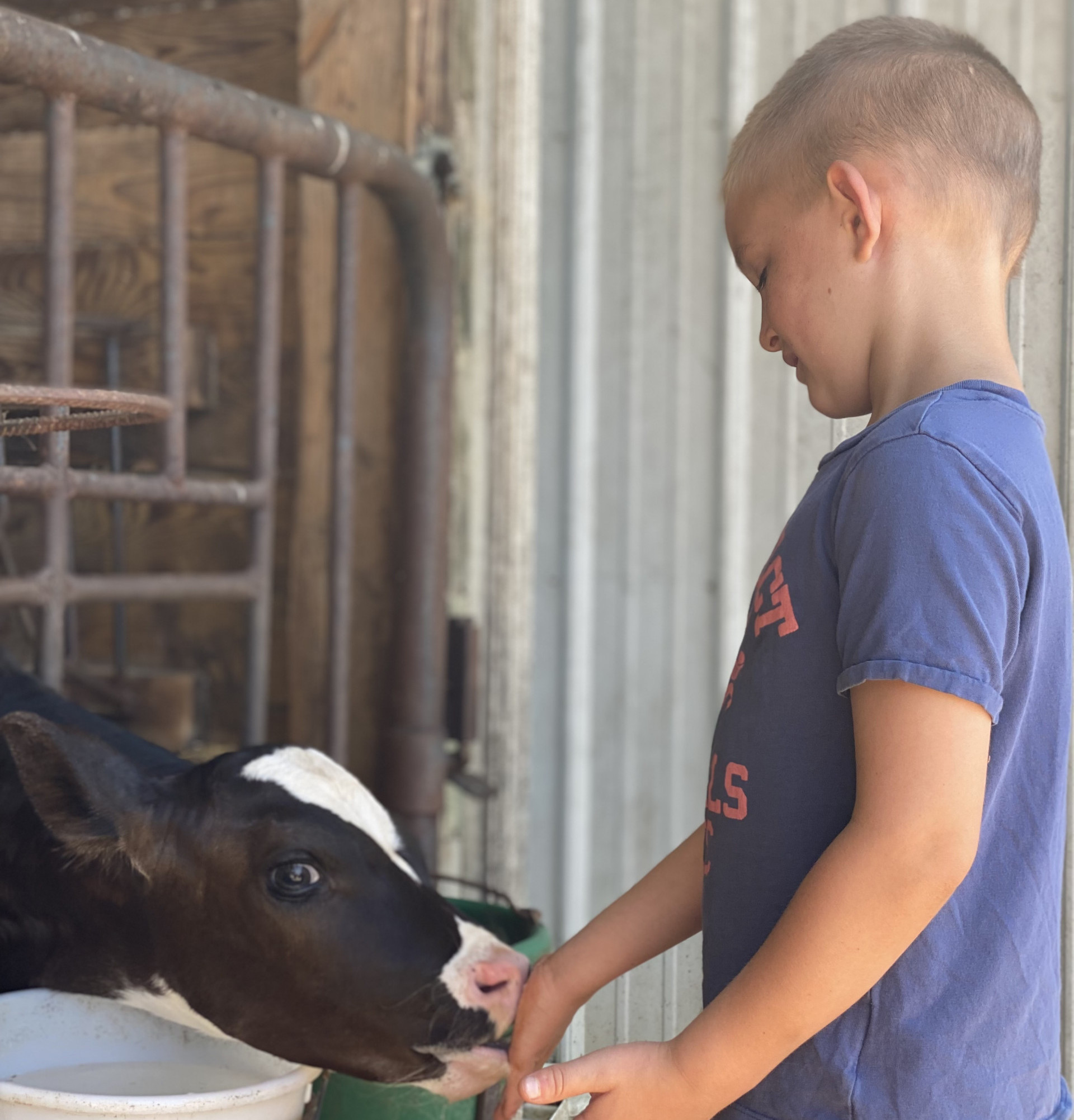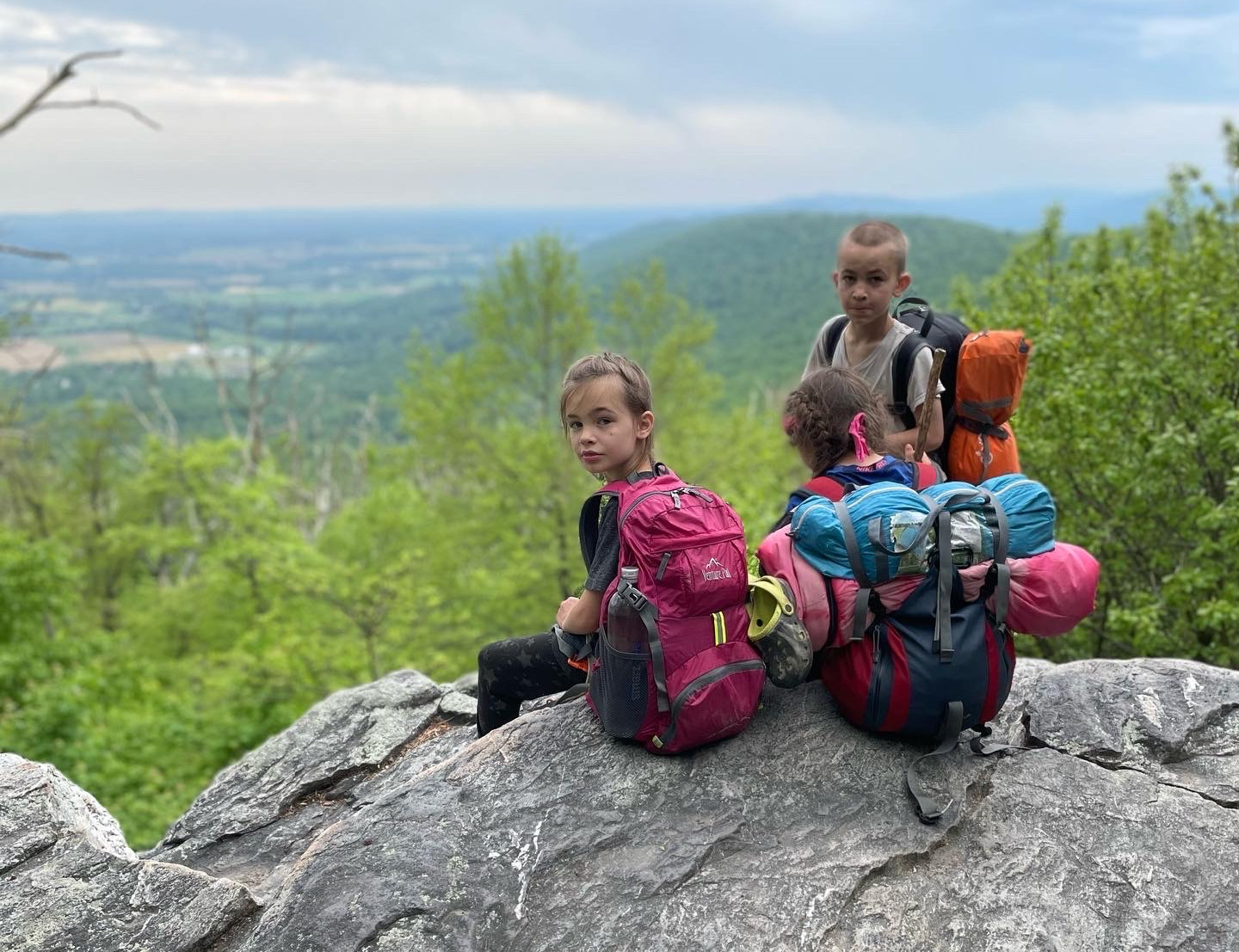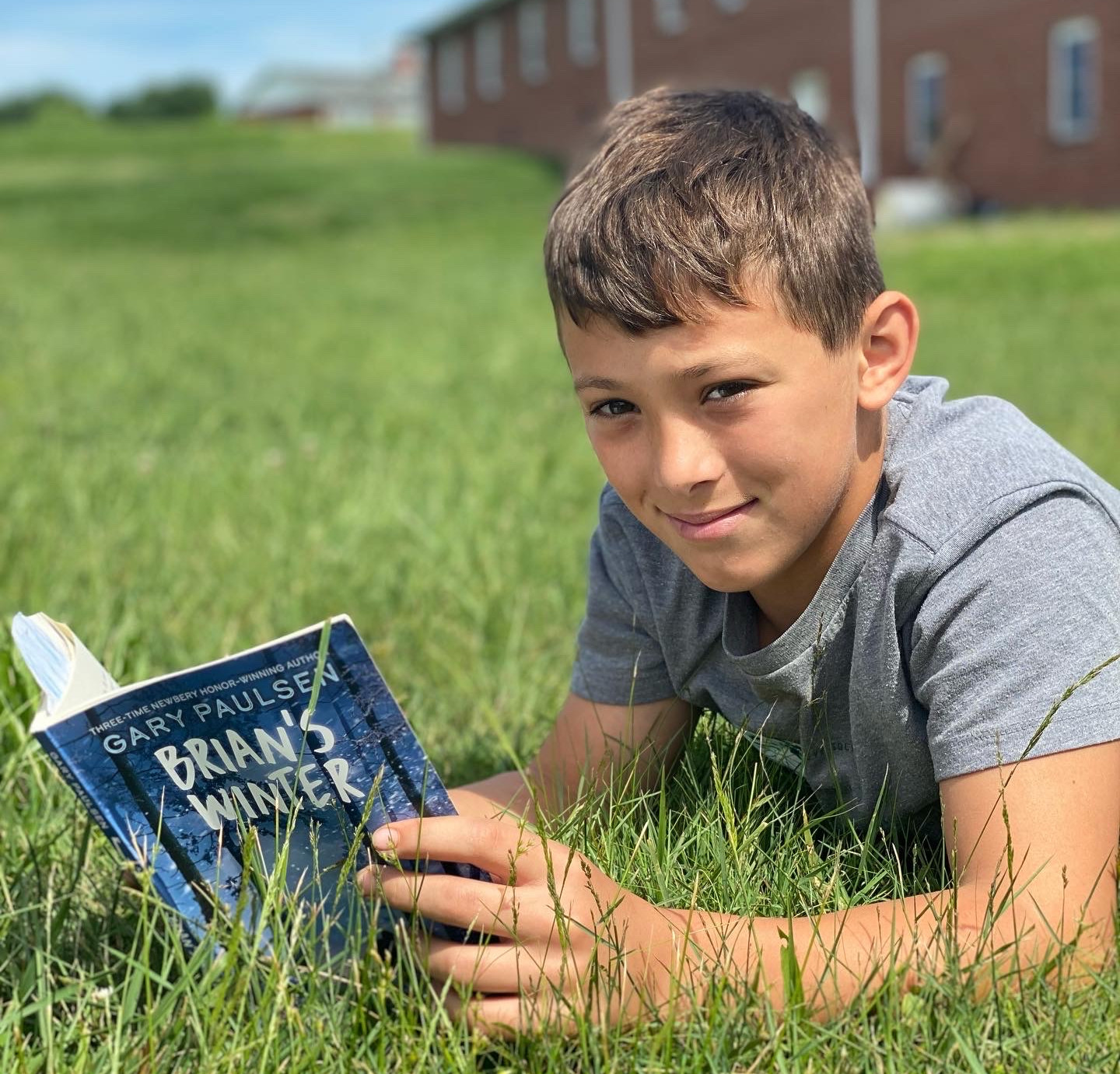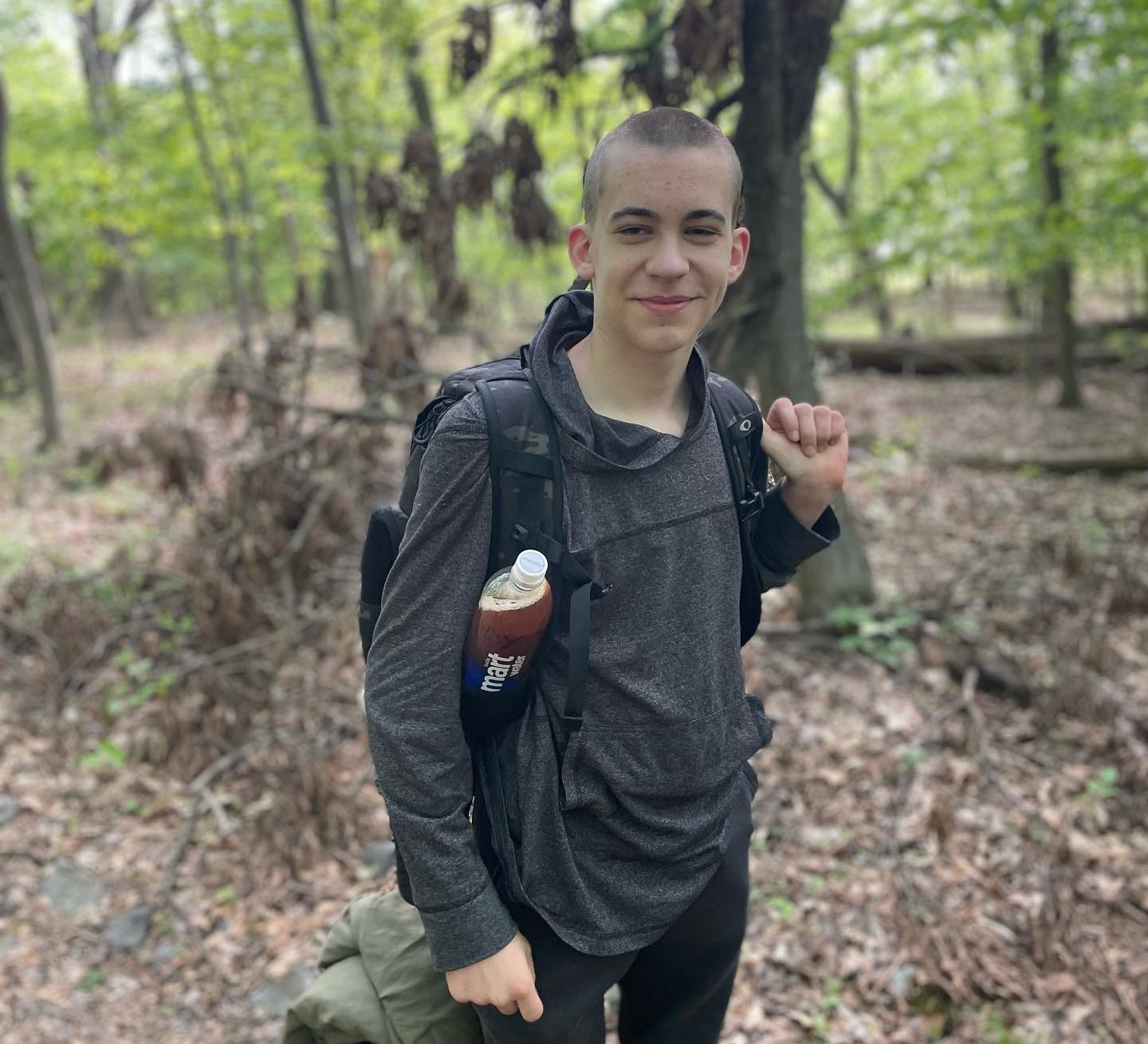Curriculum Overview
Meraki Academy is a school model for the future, now. Meraki Academy is reinventing education for children. The world needs a generation of heroes who have good character and a strong moral compass that will guide them to do big things. Normal people doing extraordinary things at a time when educational change is needed will bring about great educational change. The latest in educational technology enables self-paced mastery of reading, writing, and math skills. Deep Socratic discussions about heroes, history, and self-governance hone critical thinking skills and the ability to powerfully think, write, and speak. Hands-on project-based quests help students master the tools and skills needed to solve problems in the real world. A commitment to written promises and covenants form a tightly bound community of individuals learning to form authentic friendships and authentically solve interpersonal problems.
This is a learner-driven community. Responsibility for their education is placed squarely on the shoulders of the learners. They are provided with boundaries, mentors, and legitimate authority. Then, within those boundaries, the students are trusted with the freedom and responsibility necessary to take charge of their own education. Next, the students are allowed to struggle. In this struggle, they accomplish the most important task of childhood and adolescent: the development of a sense of self. It is this development that enables the development of all the character traits we most want our children to develop: self-control, self-discipline, self-confidence, resilience, perseverance, good work ethic, empathy, compassion, etc.
Along this Hero’s Journey, learners seize the adventure. Through questions, curiosity, trust, and struggle, they answer the transformative questions:
- Am I really a match for this task?
- Can I overcome the dangers?
- Who are my friends?
- Do I have the courage and the capacity for the challenge before me?
Students create and sign a contract of promises describing how each individual will act and the consequences for violating community norms. Mentor teams encourage younger and older students to listen, affirm, set goals, and hold each other accountable. “Learn to Be” badges are awarded to celebrate character and completed leadership challenges. Cecil County Children’s Business Fair gives children the opportunity to be entrepreneurs—boosting their confidence, teaching valuable lessons, and giving them experience they will never forget. All businesses are created and launched entirely by the children. Middle and High School students engage in apprenticeships in the real world, selecting an industry that interests them and persuading an expert in that field to mentor them.

Foundation (Core Phase) Ages 5-8 years
A limited number of spaces are available each year. Please contact us to find out more!
Spark (Love of Learning Phase) Ages 7-11 years
A limited number of spaces are available each year. Please contact us to find out more!


Ignite (Transition to Scholar Phase) Ages 10-14 years
A limited number of spaces are available each year. Please contact us to find out more!

Basecamp (Scholar Phase) Ages 13-18 years
A limited number of spaces are available each year. Please contact us to find out more!
+ Measuring Mastery and Ensuring Accountability
Accountability to the World. There are no grades awarded at Meraki Academy. Students only progress when mastery is achieved. They progress at their own pace, setting goals and planning their progress, then holding themselves and each other accountable. Students celebrate the mastery of tools, skills, and character by earning badges, assembling portfolios, and taking part in public exhibitions. Parents use badges to track academic progress in Core Skills like reading, writing, math, and spelling, and character development. Points track effort doing focused work. Competitions outside the studio allow students to compete against world-class peers. Reviews measure leadership and warmhearted and toughminded contributions to the classroom. School currency incentivizes students to work hard as what they are paid is equal to their work output. Currency can be used to purchase items in the school store. Elected studio council members work to help one another solve conflicts and innovate new operating systems within the school. Freedom Levels incentivize students to develop responsibility as they earn more privileges the more maturity they exhibit.
Accountability to Yourself. Goal setting measures progress through daily, weekly, and longer-term goals. Servant Leader Badges celebrate transformation into an independent learner and a purposeful leader.
Mathematics (Core Skill).
Meraki Academy uses the latest in adaptive game-based educational technology to deliver a self-directed, self-paced, and self-selected math experience. Students choose which tools work best for them and take the time they need to master the material before moving on to the next lesson. They then further deepen their understanding during Quests. These projects almost always include math elements such as measurement, cost-benefit analyses, budgeting, and other real-life math applications. Students spend an average of 10 hours a week working on Core Skills. They choose how much of that time is focused on math. Most of them spend 30-40 minutes a day on mathematics.
Writing (Core Skill).
Writing skills are learned through guide-led Writer’s Workshops and adaptive game-based educational software. Writer’s Workshops start with journaling and lighthearted creative writing and move to more challenging work over time. During workshops, guides introduce new writing techniques and new genres of writing. Students spend about 2 hours a week in writing workshops. They spend time during Core Skills time honing these new skills. They also practice their writing skills during Quests, which always have a written component.
Reading (Core Skill).
The first priority with reading is to inspire students to develop a love of reading. Because of this, we let them read whatever they want. Once they love to read, we offer more challenging ideas, authors, and genres. Students choose from a wide selection of books from our library or bring their own. They find a comfortable place to sit and silently devour the book of their choice. Once a week we Drop Everything and Read (DEAR). Students post literature critiques on Goodreads, mark the bookshelves with their “Hero Picks”, and have book exchanges on Valentine’s Day to celebrate the act of reading. Students use a portion of their Core Skills time on reading, choosing exactly how much time they want to allocate to it.
Collaborative Projects (Quests)
Quests are challenging hands-on, real-world, multidisciplinary projects carefully developed and designed to include elements of science, math, reading, writing, and the humanities. Quests explore topics in science, social studies, geography, history, entrepreneurship, economics, architecture, marine biology, coding, and robotics. They are usually completed in groups, last 5-6 weeks, and culminate in a public exhibition to parents and the community. Students spend an average of 1.5 hours a day working on Quests.
Socratic Discussions
The Socratic Method is used to stimulate critical thinking through debate and inquiry. These discussions are powerful ways for students to help each other explore ideas, values, and opinions on politics, history, the humanities, current events, and self-governance. Guides might share a story, a video clip, or a world-class example to launch a Socratic discussion. This is designed to inspire and encourage, address the purpose behind the upcoming activity, bring up a community need, focus on building character, or establish priorities for the day. Students spend about 20 minutes a day participating on Socratic discussions, but the Socratic method is also woven throughout the day.
The Arts.
Art exploration includes, but certainly is not limited to painting, drawing, sculpting, music, drama, dance, photography, and film. Guides or local professionals in the arts lead sessions that inspire students to explore and let their creativity and imagination soar. In addition, arts-based Quests allow students to dig deeply into specific art forms. They spend, on average, 3-4 hours a week on the Arts, in addition to the time spent on arts-based Quests.
Physical Activity.
Each day is started with 30 minutes of physical activity to help students release energy and gain focus before getting to work. By making exercise a priority as young as possible, they will be better prepared to live richer and more fulfilling lives. The program will focus on functional training, utilizing the functional fitness philosophy to provide a solid foundation in exercise skills that will help children become adept at planning their own workouts in a way that’s fun, accessible, and empowering. Once a week students will choose and lead an additional physical education session focusing on a different physical discipline, such as yoga, running, aerobics, or martial arts. They will have an additional weekly session where they explore specific sports, often off-site, for an entire 5-6 week session. These can include skating, gymnastics, karate, swimming, rock-climbing, soccer, etc., depending on their interest. They spend an average of 7 hours a week doing physical activities, not including daily recess at lunch time. In addition, students can get up and stretch, walk outside, or do any physical activity of their choice whenever they feel they need a break to help them refocus on their task at hand.
Health and Nutrition.
As with most other things, how we fuel our body and take care of it physically is learned through what we live. We learn to do and learn to be through what it is that we are living. We learn through our experiences. All the lectures in the world on nutrition and won’t make us change or improve until there is a change of heart. The physical aspect of a person is every bit as important as the social, emotional, mental, and spiritual. As such, it requires just as much attention. Just as inadequately exercising or fueling your body can negatively impact these other areas, adequately caring for your body can positively impact them. When children are allowed to make choices about food, become curious about it, and discover how to properly take care of themselves physically, they are empowered to develop habits that last a lifetime.
Long-term, Meraki Academy will utilize raising animals and food as a learning tool. Animals are invaluable learning tools and much can be learned by caring for them. Growing food also has many benefits. Children who grow their own food understand where their food comes from. They eat more fruits and vegetables and are much less likely to become obese or develop diabetes. These are just some of the health benefits. Raising animals–especially those raised to be eaten–and growing food, also have a positive impact on taking care of ourselves physically.
Mindfulness.
Students participate in a short daily mindfulness practice immediately following their morning physical activity. This practice may include meditation, yoga, breathing exercises, stress and anxiety management tools, and emotional intelligence and compassion cultivation exercises. Mindfulness can equip children with the tools necessary to fend off negative thoughts and behaviors, build self-confidence and focus, treat others and themselves with respect and appreciation, improve academic performance, decrease stress levels, and increase emotional maturity. They spend about 1 hours a week practicing mindfulness and then incorporate in into their everyday life.
Field Experiences.
Field experiences and guest presenters related to the Quest in session extend learning beyond the classroom. Students also enjoy regular trips to the local library. They embark on an average of 3 field experiences every 5-6 week session.
Entrepreneurship.
Every year at Meraki Academy, our students build small businesses from the ground up. By preparing our students to become entrepreneurs (whether they ultimately choose that path or not), we are in turn preparing them for anything they may choose to do in their future. Everything we do at Meraki Academy is designed to help our students develop these “soft skills” while at the same time ensuring they are competitive academically. The research is clear about the future of work in the United States; to be successful in the workforce, young adults will need to possess a high level of entrepreneurial skills that include complex problem solving, critical thinking, social perceptiveness, collaboration, creativity, emotional intelligence, decision-making skills, communication skills, and adaptability.
+ Apprenticeship Quest
The Apprenticeship Quest is one of our most transformational challenges. This process equips Middle School and High School students to find and secure apprenticeships with little to no assistance from adults. Included in this process:
1) Digging deeply into your gifts, activities that bring you joy, and deep burning needs in the world to create a prioritized list of apprenticeship possibilities.
2) Writing a compelling introductory email to a business owner you see as a hero or role model, asking for a short phone call to explain the apprenticeship model.
3) Crafting a phone pitch explaining how apprenticeships work, including a promise to show up early, work late, and do whatever it takes to add real value, and asking for a chance to meet in person.
4) Creating an in-person pitch, where you ask for a chance to prove yourself.
5) Learning to manage a portfolio of apprenticeship possibilities, just in case your first choice doesn’t work out.
6) Negotiating a contract with your employer and parents to make sure goals and promises are clear.
7) Having a plan to add value in the first few days and a way to capture the lessons you learn.
8) Following up with thank you letters and a request for a reference letter.
Step by step, students learn to find and secure the perfect steppingstone job toward their calling that will change the world.
Character.
We believe our students need two critical qualities to truly succeed: warm-heartedness and toughmindedness. These are the traits of heroes, not victims, and must be demonstrated in real life to earn the required Character Badges. Peer-to-peer feedback on their heart and mind is shared during 360 Feedback exercises. Being warm-hearted involves cultivating strong relationships, compassion, respect for others, generosity, helping others, and prepared for the world. Being tough-minded involves being a life-long learner, independent, self-confident, a problem solver, not afraid to fail, prepared for the world.
+ 360 Reviews
360 reviews are a tool used at top companies like Apple and Google. Each student is given a survey and asked to rate every classmate’s tough-mindedness (a measure of how they hold themselves and others accountable) and warm-heartedness (a measure of how encouraging they are to others) on a scale of 1 (low) to 5 (high). The purpose of the survey is to provide anonymous feedback to fellow students to help them become more tough-minded without being hardhearted and develop into Level 5 Leaders.
Level 5 Leaders are toughminded and warmhearted. They are encouraging, draw boundaries, set consequences, and keep promises to themselves and others, while remaining cheerful and friendly. Policemen hold firm boundaries but tend to focus on criticizing mistakes and individuals rather than praising behavior and progress. Pushovers praise often but are afraid to hold people accountable. Because of a lack of courage, they do not help their friends grow. Snarks criticize and tear people down and fail to hold each other accountable.
Surveys are collected, then summarized. Results are plotted on a 2×2 matrix (low to high tough-mindedness versus low to high warm-heartedness), substituting a number for each student’s name. Each student then silently assesses and writes down where they think their classmates ranked them before learning their actual position on the graph (which is privately distributed).
+ Schedule
Meraki Academy will operate on an 11-month schedule trimester calendar that allows for extended breaks throughout the year and maintains interest and retention. Our flexible program allows families to travel together throughout the year, without sacrificing any learning. Traveling is encouraged and will never interfere with learning or progress. Core Skills work can be done while traveling and participation in Quests can be done remotely utilizing technology in whatever way necessary.
Daily Schedule:
7:45 – 8:10am – Students arrive
8:10 – Morning Circle
8:25 – Physical Fitness 8:50 – Mental Fitness
9:00 – Core Skills
11:00 – Track SMART Goals
11:05 – 5 Minute Cleanup
11:10 – Lunch 11:40 – Lunch Cleanup
11:45 – Free time-No Tech
12:15 — Civilizations/Writers Workshop 1:15 — Quests 2:45 — Organize Work/Packup 2:50 –Commonplace/Connections Journal 3:00 – Studio Maintenance 3:15 — Closing Circle
*Recess is not scheduled during the morning or afternoon, but students are free to take a breather, grab a snack, or even take an exercise break whenever they need to.
